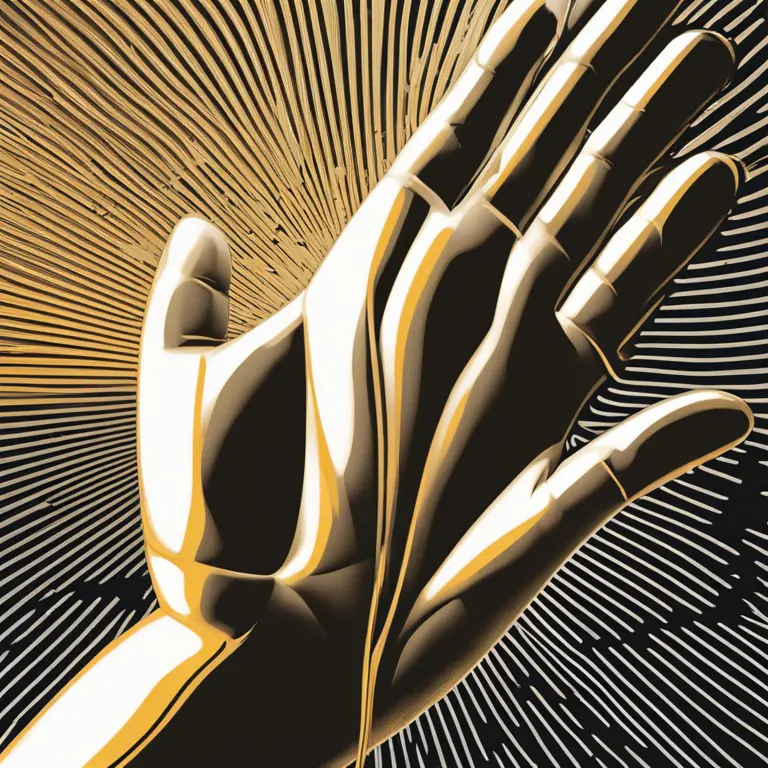
The Mystery of a Missing Life Line in Palmistry
Discover what it means when you can't find a life line on your palm and how it might influence palmistry interpretations.
article by Nora Pennington
Introduction to Life Line Variations
Palmistry is a practice rich with symbolism and insights, intertwined with the lines that crisscross one’s palm. A primary line palmists observe is the life line. Contrary to common belief, the life line doesn’t predict the length of life, but rather, reflects one's vitality and life changes. But what if one such important line is absent or barely visible? In this article, we delve into the rare instance when an individual lacks a prominent life line, and the implications it holds in the art of palm reading.

Significance of the Life Line
The life line begins between the index finger and the thumb, sweeping around the ball of the thumb, hugging the base. A clear and deep line is often an indicator of a smooth and well-established life path with stability and vitality. It's also associated with a person's physical energy and enthusiasm for life. A disrupted life line could suggest significant life changes or challenges. Therefore, an absent life line can spark curiosity and intrigue both for the layperson and the seasoned palmist.

Interpreting a Faint or Missing Life Line
Palmistry is adaptable, and its interpretations can vary. A faint or missing life line might be indicative of a laissez-faire attitude towards life, with less focus on structured routines. It could also hint at an adventurous spirit, unafraid of change. While it may cause some initial concern, it's important to remember that palmistry views hands as a whole. Other lines, such as the heart and head lines, will also significantly contribute to an individual's reading.

The Impact of Hand Dynamics
In palmistry, the dynamic nature of the hands also plays a crucial role. It’s believed that lines can change over time, reflecting personal growth and life experiences. A missing life line might develop slowly as a person establishes a more defined life path. This concept underscores the palmistry view that our destinies are not fixed but are fluid and subject to the influence of our actions and decisions.

Complementary Lines and Markings
When a life line is unclear or absent, other features on the palm like the Mars line—also known as the secondary life line—can be of significant interest. This line runs parallel to the life line and provides additional strength to a person's vitality. Similarly, markings like crosses, stars, or squares can offer supplementary insights and ought to be carefully considered to give a full reading.
Consulting a Professional Palmist
For those without a clear life line, seeking a professional palmist knowledgeable in various interpretations is beneficial. Every palm is unique, and a seasoned reader will engage with a range of palmistry techniques to provide a comprehensive understanding. Rather than relying on a single line, they will consider the interplay of all lines, mounds, and markings to offer guidance and insight.
Final Thoughts on Line Absences
The absence of a life line may initially seem disconcerting, but in the fluid practice of palmistry, it simply adds another layer to the individual's story. It challenges palmists to look beyond the obvious, pushing them to develop a deeper reading of the hand's landscape. After all, the art of palm reading isn't about fixed outcomes, but interpreting the signs to offer empowerment and reflection on one’s personal journey.
Published: 1/11/2024
Modified: 1/12/2024
More predictions
Come back here soon to learn more about yourself and your future


Can Palmistry Predict Your Path Incorrectly?
Delving into the accuracy of palm readings, this article examines whether palmistry can lead to incorrect predictions about one's life and destiny.


The Possibility of Palmistry in Cancer Detection
Examining the claims that palmistry holds any potential in identifying the risk of cancer: a deep dive into the world of mysticism and medicine.


Palmistry Basics: How to Read Your Hand's Secrets
Learn the basics of palmistry with this guide on how to read the lines and shapes of your hands to reveal insights about your personality and future.